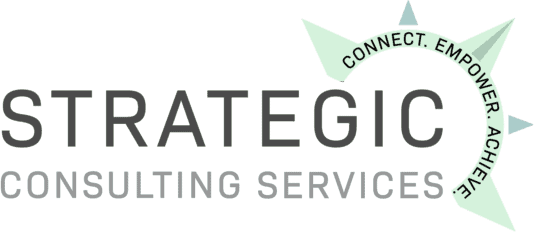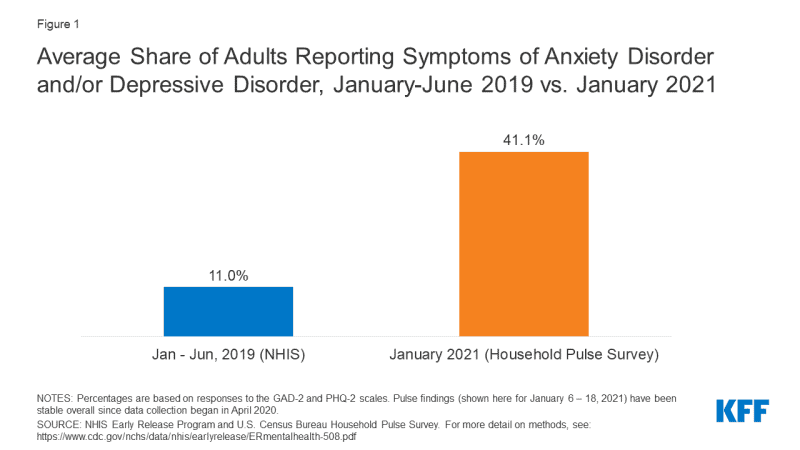The mental health of our workforce has been challenged by COVID-19, with a 30% increase in adults reporting symptoms of anxiety disorder and/or depressive disorder (see figure from study by Kaiser).
For those who have developed a symptoms of these mental health conditions (or whose existing disorders became exacerbated) working from home may have offered a refuge, as workers have enthusiastically reported that they enjoy working from home at least some of the time and especially enjoy the flexibility of being able to choose.
Now as we are in the ‘return to work’ (or RTW) phase, workers are going to, again, have to adapt and evolve to the changing requirements of their career.
Returning to Work Causes Anxiety
The disruption of having to return to the physical office will likely be an adjustment for everyone. Disruption fuel stress, and the shift back to the physical work space can be a stressful proposition.
“Our brains don’t like uncertainty,” said Dr. Judson Brewer, the director of research and innovation at Brown University’s Mindfulness Center.
Here are some recommendations that will reduce ‘RTW anxiety:’
- Plan it out. Mentally rehearse your morning routine and commute so that you are not going to be late and minimize frustrating surprises.
- Take a breather (or use other stress reducing mindfulness technique). Simple, yet effective. There are many simple ‘grounding exercises’ laid out by the American Psychological Association here.
- Communicate with others. Taking a moment to ‘check in’ with other employees and share your experience will be soothing and encouraging.
Remaining Remote Can Also Cause Anxiety
Many in the workforce will remain ‘working from home’ (WFH), as this trend was already on the rise before COVID-19 struck. A study by Upwork predicts that which expects that by 2025, 36.2 million U.S. workers will be working fully remotely, which would be an 87 percent increase from pre-pandemic levels.
WFH employees can feel isolated, anxious, and depressed. Particularly difficult is feeling ‘left out’ of what is happening at the company and/or company decisions. Communication can alleviate a lot of these feelings of isolation and fear. Managers are encouraged to:
- Provide Robust Onboarding Materials. By ‘over-explaining’ processes and expectations, it helps WFH employees feel included and confident in what they are to be doing.
- Acknowledge Remote Workers’ Successes. A little encouragement can go a long way in making WFH workers feel encouraged.
- Offer Mutual Working Hours. By working at the same time as other employees, remote workers will feel included and less isolated.
Take the Time to Find Out
One common thread throughout all of these suggestions for both types of workers is communication. There is no substitute for taking the time and getting to know what is on the mind of your employees. Through communication you can understand the issues and challenges they are facing and plan solutions and assistance for them to thrive and be productive.
Strategic Consulting is Your Partner in Managing Workplace Challenges
For twenty years, we have been helping companies in the Pacific Northwest with worker injuries, disabilities, and other vocational challenges.
We have partnered and provided solutions to some of the largest companies in the world (such as Boeing, Microsoft, and Amazon). But, at our core, we are still “people taking care of people,” one project at a time. Our success is built upon and providing you the best solution to your workplace challenge. Contact us today by filling out a form (below), submitting a referral, or visiting our ‘Contact Us‘ page to find your nearest office.
Ric has been working in the industry since 2002, specializing in developing employer jobsite analysis and light duty programs, ergonomics consultations and adjustments, disability accommodations and providing effective return to work solutions. Ric is Matheson trained in Ergonomics and is a Certified Ergonomics Evaluation Specialist. He earned a Bachelor of Arts Degree in Psychology from Western Washington University and later his Master’s Degree, M.Ed., Education Counseling from Seattle Pacific University. Ric is currently a Registered Vocational Rehabilitation Counselor for the Department of Labor and Industries and has been a Certified Disability Manager Specialist since 2006.


